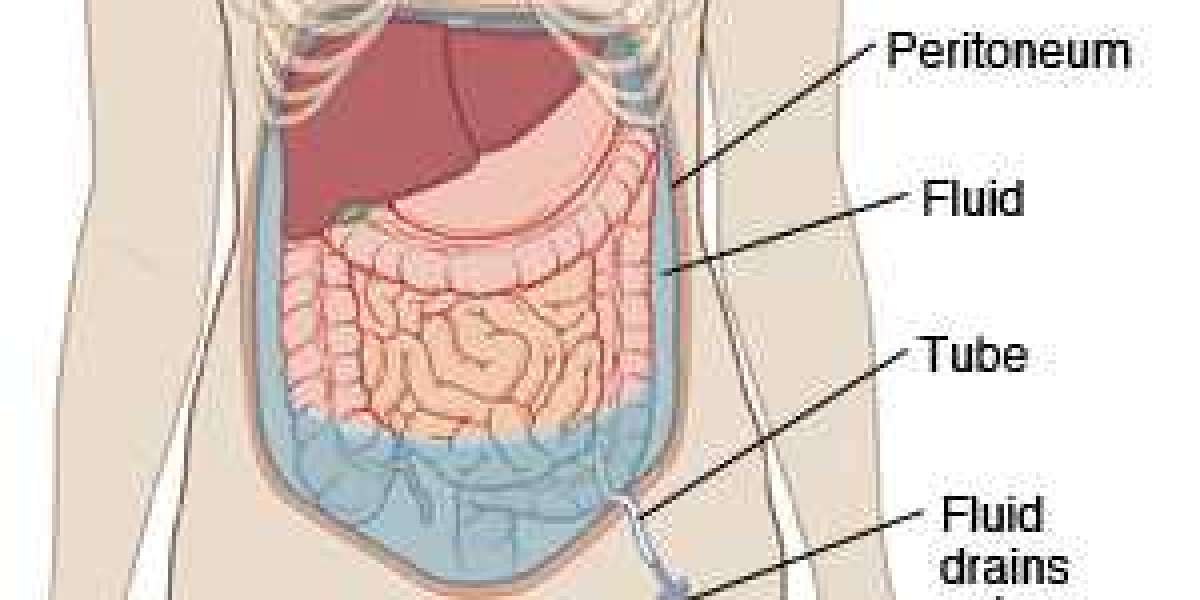Introduction to Infertility
Are you ready to delve into the fascinating world of fertility and lifestyle factors that can impact your journey towards parenthood? Join us as we explore how everyday choices, habits, and environmental influences play a significant role in infertility. Whether you're considering starting a family or seeking solutions for conception challenges, understanding the connection between lifestyle and fertility is key. Let's unravel this intricate link together!
The Impact of Lifestyle on Fertility
Infertility can be a complex issue influenced by various factors, including lifestyle choices. The way we live our lives can have a significant impact on fertility outcomes. Factors like diet, exercise, stress levels, environmental exposure, and cultural norms all play a role in determining fertility potential.
Diet and nutrition are crucial aspects that can either support or hinder reproductive health. Eating a balanced diet rich in vitamins, minerals, and antioxidants is essential for optimal fertility. On the other hand, consuming excessive processed foods or sugary beverages may negatively affect reproductive function.
Regular physical activity is not only beneficial for overall health but also plays a role in improving fertility. Exercise helps maintain a healthy weight and reduces the risk of conditions like polycystic ovary syndrome (PCOS) that can contribute to infertility.
Managing stress levels and prioritizing mental well-being are also important components of supporting fertility. High levels of stress can disrupt hormonal balance and interfere with reproductive processes. Finding healthy ways to cope with stress through relaxation techniques or therapy can positively impact fertility outcomes.
Environmental factors such as exposure to toxins or pollutants in our surroundings can also influence fertility. Being mindful of potential hazards in our environment and taking steps to minimize exposure wherever possible is vital for optimizing reproductive health.
As societal norms around family planning evolve, couples are choosing to start families later in life which may impact fertility rates due to age-related decline. Seeking professional help from specialists like urologists such as Dr.
Bivek Kumar who specialize in treating infertility issues is essential for those struggling to conceive despite making lifestyle changes.
Diet and Nutrition
Maintaining a healthy diet and proper nutrition is crucial when it comes to fertility. What we eat can have a significant impact on our reproductive health. A balanced diet rich in vitamins, minerals, and antioxidants can help support overall fertility.
Including foods like leafy greens, fruits, whole grains, lean proteins, and healthy fats in your diet can provide essential nutrients for reproductive function. Antioxidant-rich foods such as berries, nuts, and seeds may also help protect the eggs and sperm from damage caused by free radicals.
On the other hand, processed foods high in sugar and unhealthy fats may negatively affect fertility. It's important to limit consumption of sugary snacks, refined carbs, and trans fats which can disrupt hormone levels and increase inflammation in the body.
Staying hydrated by drinking plenty of water is also key for optimal reproductive health. Hydration supports blood flow to the reproductive organs and helps maintain cervical mucus quality necessary for conception. Remember that small changes in your diet can make a big difference when it comes to improving fertility naturally!
Exercise and Physical Activity
In the realm of fertility, incorporating exercise and physical activity into your daily routine can play a significant role in optimizing reproductive health. Engaging in regular exercise not only helps maintain a healthy weight but also improves blood circulation to the reproductive organs, promoting overall fertility.
Physical activity has been linked to reducing stress levels, which is crucial for both male and female fertility. Stress can disrupt hormonal balance and ovulation in women, while it can affect sperm production in men. By incorporating activities like yoga, walking, or swimming into your lifestyle, you can help manage stress levels effectively.
Additionally, staying active can enhance your overall well-being by boosting mood and energy levels. Whether it's hitting the gym or going for a jog outdoors, finding an exercise routine that you enjoy is key to sustaining long-term fitness goals. So lace up those sneakers and prioritize movement for better reproductive health!
Stress Management and Mental Health
Managing stress and maintaining good mental health are crucial aspects when it comes to fertility. The mind-body connection plays a significant role in reproductive health, highlighting the importance of addressing psychological well-being in infertility treatment.
High levels of stress can disrupt hormonal balance, impacting ovulation and sperm production. Finding effective ways to reduce stress, such as mindfulness techniques, yoga, or therapy, can help improve fertility outcomes.
Taking care of your mental health is not only beneficial for conception but also for overall well-being. Engaging in activities that bring joy and relaxation can positively influence reproductive health.
It's essential to prioritize self-care and seek support when needed during the fertility journey. Remember that managing stress is not just about improving fertility chances; it's about nurturing your emotional resilience and inner peace as you navigate this challenging path towards parenthood.
Environmental Factors
Environmental factors play a crucial role in fertility issues that many individuals face. Our surroundings can impact reproductive health in various ways, from exposure to pollutants to lifestyle habits that are influenced by our environment.
Pollutants found in the air, water, and food we consume can have detrimental effects on both male and female fertility. Chemicals like pesticides, BPA, and phthalates are known to disrupt hormonal balance and affect reproductive functions.
Moreover, lifestyle choices influenced by environmental factors such as smoking, alcohol consumption, and sedentary living can also contribute to infertility problems. These habits not only impact overall health but also directly influence fertility outcomes.
It is essential for individuals trying to conceive to be mindful of their surroundings and make conscious efforts to minimize exposure to harmful environmental elements that could potentially hinder their chances of conceiving successfully.
Changing Cultural Norms and Family Planning
In today's modern society, cultural norms and values around family planning are evolving. Traditionally, there was often pressure on couples to have children early in their marriage. However, with changing times, individuals are embracing the idea of focusing on career growth and personal development before starting a family.
Moreover, the concept of a nuclear family is shifting towards more diverse family structures such as single-parent households or child-free couples by choice. This shift reflects a broader acceptance of alternative lifestyles and choices beyond the traditional norms.
Additionally, advancements in reproductive technologies have provided new options for those facing infertility issues. Couples now have access to various treatments like IVF or surrogacy, giving them hope for starting a family despite biological challenges.
These changing cultural attitudes towards family planning highlight the importance of individual autonomy and decision-making when it comes to fertility journey.
Seeking Professional Help for Infertility
Struggling with infertility can be a challenging and emotional journey. It's essential to know that you're not alone in this experience, and seeking professional help can provide valuable support and guidance. When facing fertility issues, consulting a specialist such as Dr. Bivek Kumar, a renowned urologist specialist in Kolkata, can offer insights into potential causes and personalized treatment options.
Reaching out to a fertility expert is the first step towards understanding your unique situation and exploring available solutions tailored to your needs. These specialists have the expertise and resources to conduct thorough assessments, recommend appropriate tests, and suggest effective interventions based on your medical history.
By partnering with a knowledgeable healthcare provider specializing in infertility treatment in Kolkata like Dr. Bivek Kumar, you can access advanced diagnostic tools and cutting-edge treatments that may enhance your chances of conceiving successfully. Remember, it's okay to seek help - taking proactive steps towards addressing infertility can lead you closer to achieving your dream of starting or expanding your family.
Lifestyle Changes for Improving Fertility
When it comes to improving fertility through lifestyle changes, small adjustments can make a big difference. Start by focusing on your diet and nutrition – include plenty of fruits, vegetables, whole grains, and lean proteins while limiting processed foods and sugars. Maintaining a healthy weight is crucial for both men and women looking to enhance their fertility.
Regular exercise not only helps with weight management but also boosts overall health. Aim for at least 30 minutes of moderate physical activity most days of the week. Managing stress is equally important as high levels of stress can negatively impact fertility. Incorporate relaxation techniques such as yoga, meditation, or deep breathing exercises into your daily routine.
Environmental factors like exposure to toxins in the environment can also affect fertility. Try to minimize exposure to harmful chemicals found in certain cleaning products, plastics, and pesticides. Making these lifestyle changes may take time but staying committed can significantly increase your chances of conceiving naturally without medical intervention.
Conclusion
As we have explored the various aspects of lifestyle and its impact on infertility, it is evident that our daily habits and choices play a significant role in fertility levels. From diet and exercise to stress management and environmental factors, each aspect can either support or hinder our reproductive health.
It is crucial for individuals struggling with infertility to seek professional help from specialists like urologist Dr. Bivek Kumar in Kolkata. By addressing lifestyle factors and seeking appropriate medical guidance, many couples can improve their chances of conceiving.
Remember, making positive lifestyle changes may not only enhance fertility but also contribute to overall well-being. Prioritize your health, make informed choices, and trust the expertise of healthcare professionals on your journey towards parenthood. Embracing a holistic approach to fertility can lead to hopeful outcomes for those facing challenges in starting a family.
Keep exploring new possibilities, stay informed about advancements in infertility treatment options available in Kolkata like those offered by Dr. Bivek Kumar, and remain optimistic as you navigate through this phase of life. Your path to parenthood may have obstacles, but with perseverance, patience, and the right support system in place, achieving your dream of having a child is within reach.



